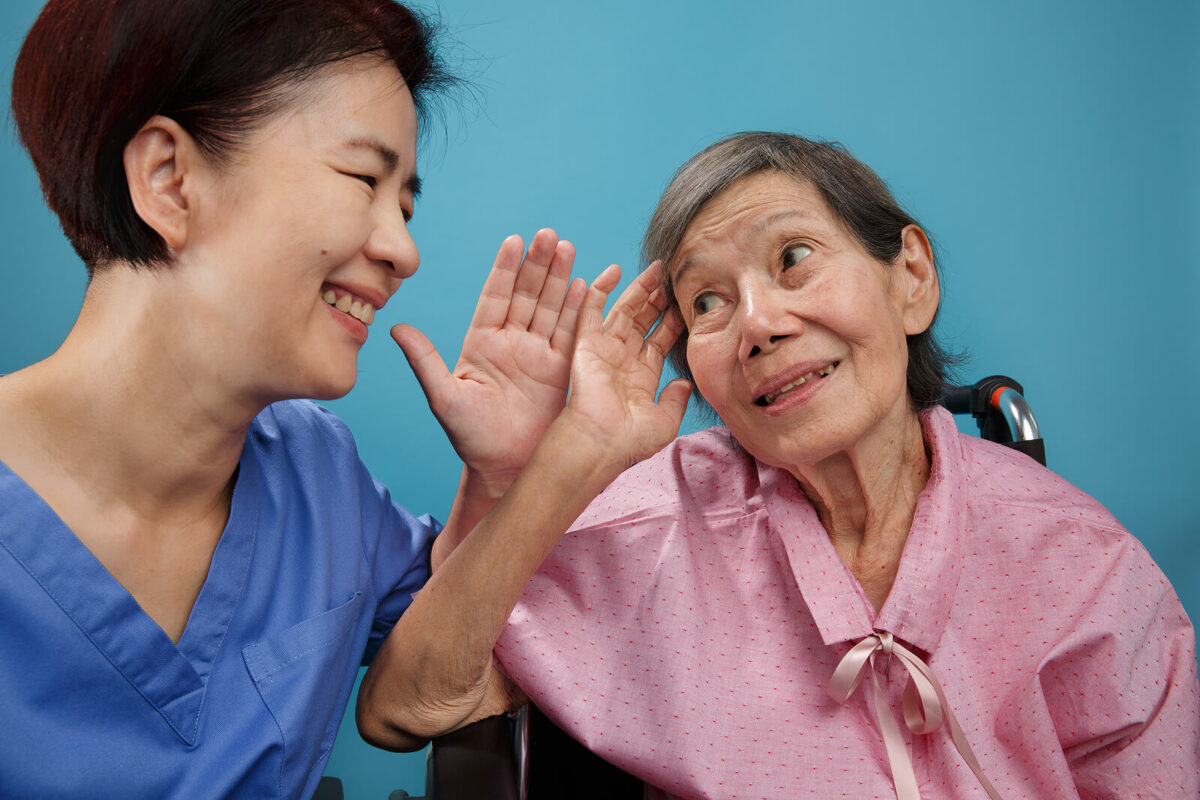- Are Cochlear Implants Worth It? - June 6, 2025
- Tips for Using Hearing Aids in Different Environments - May 27, 2025
- Rechargeable Hearing Aids vs. Battery-operated Hearing Aids - May 16, 2025
As we age, we commonly experience changes in our hearing. The change does not happen suddenly, but is more gradual, like the gradual process of graying hair. Nevertheless, it is crucial to pay attention to these initial indications. Research shows that men are almost twice as likely as women to have hearing loss among adults aged 20–69.
Read on for a few common signs and symptoms of hearing loss.
1) Your Ears Feel Clogged
You’ve probably felt your ears get clogged before, maybe after swimming, changing altitudes, or getting sick. This frequently happens when there is an abundance of wax or fluid in the ears. However, if a doctor confirms that your ears are clear, it may be a good idea to undergo a hearing test.
Age-related hearing loss can cause sounds to appear muffled or dull, which can be mistaken for a feeling of clogged ears. Almost 1 in 3 adults experience hearing loss between the ages of 65 and 74.
2) Following a Conversation in a Noisy Place Becomes Difficult
Places with lots of people, such as malls or restaurants, can be pretty loud. The noise can be so overpowering that it makes it difficult to hear higher-pitched sounds, like speech. So, instead of hearing what others are saying, you might just hear the noise around you. To make things more complicated, as we age, our brains can have a harder time separating sounds from background noise.
3) You Try to Read Lips
Instead of making eye contact, you may find yourself watching people’s lips when having a conversation.
Basically, if one of your senses becomes less effective, your brain compensates by relying more on another sense, such as vision. For instance, even if a person cannot be heard saying “v” or “m,” the word can still be understood from the shape of their lips. If the listener is having trouble hearing, this may cause them to turn their gaze to the speaker’s mouth.
4) Watching TV with a Volume Higher than Other People Need
Just because someone is having trouble following what’s happening on a TV show doesn’t always mean they have hearing problems. It could be because the show’s audio mixing is unbalanced between dialogue, sound effects, and music. If someone has an easier time hearing low-pitched sounds than high-pitched sounds, the music could drown out what a character is saying.
To catch everything being said, the viewer might crank up the volume. But if others in the house start complaining about the noise, it could be a sign that it’s time for the viewer to have their hearing checked out.
5) Children’s or Women’s Voices May Sound Unclear
As we get older, the part of our inner ear that helps us hear, called the cochlea, starts to show some wear and tear. Unfortunately, the first cells to get affected are the ones that help us hear high-pitched sounds. So, this can make it tough to make out what women and kids are saying since their voices often have higher pitches.
That’s also why some people can’t hear high-pitched sounds like crickets or whistles. It’s not that they’re necessarily “deaf”—it’s just that their ears aren’t as good at picking up those kinds of sounds anymore.
Other Symptoms of Hearing Loss
Some studies show that over 1 billion young adults are at risk of permanent, avoidable hearing loss due to unsafe listening practices. There are several other signs and symptoms of hearing loss that you or a loved one may experience, including:
- Frequently asking people to repeat themselves
- Difficulty following conversations on the phone
- Experiencing ringing in the ears
- Pain, fluid sensation, or pressure in the ear
- Feeling dizzy or having balance problems
Symptoms of hearing loss in children include:
- Not being startled by loud noises
- Not turning towards sounds or when their name is called (after 6 months of age)
- Responding to some sounds but not all
- Frequently saying, “huh?”
- Speech delays, such as not saying “dada” or “mama” by age 1.
When Should You Call Your Doctor?
If you’re having trouble with your balance, hearing a persistent ringing in your ears (also known as tinnitus), or experiencing intense ear pain, sudden hearing loss, or even deafness, it’s a good idea to get in touch with your healthcare provider.

